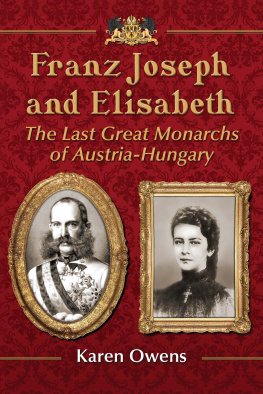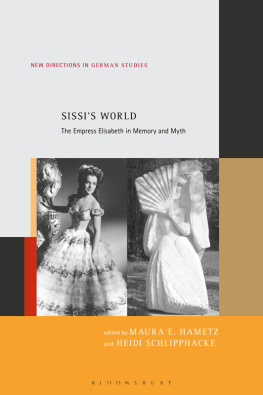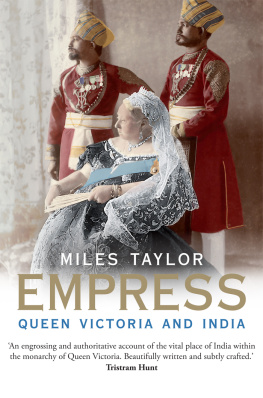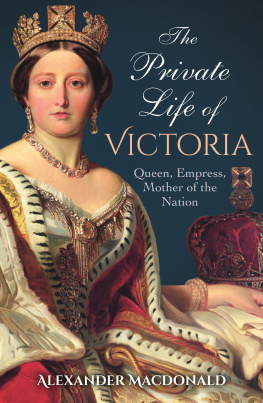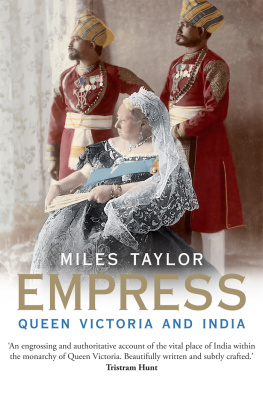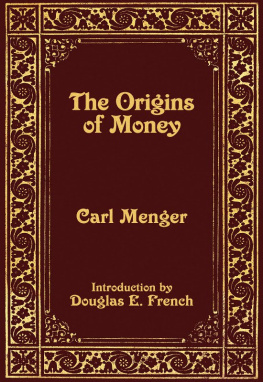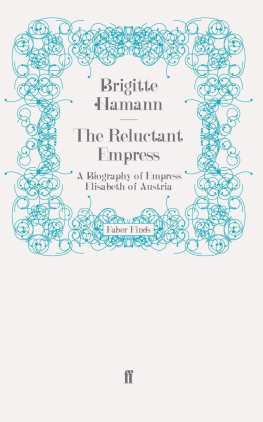Translators Preface
The story of the life of Elizabeth of Bavaria, Empress of Austria and Queen of Hungary, is one of the saddest in the history of royalty, and in some respects recalls the story of the life of Marie Antoinette. Both their lives were sorrowful, both ended tragically, the one at the hands of an assassin, the other upon the guillotine. Elizabeth will not be remembered in history as a sovereign, for everything connected with the throne and with court life was distasteful to her, but rather as the beautiful, sorrowful daughter of the Wittelsbachs. She was not only one of the most beautiful women of her time, but an accomplished scholar and linguist, a good musician, and well versed in history, science, and art. She was a passionate lover of the woods and mountains, and was happiest when she was walking or riding among them, or associating with the Hungarian people. She was no more at home with the Viennese than was Marie Antoinette with the Parisians. Her domestic life was saddened by estrangement from her husband, by lack of sympathy among her relatives, by the terrible tragedy which ended the life of her son, Prince Rudolph, and by other tragedies which involved the happiness and sometimes the lives of those nearest to her. At last her sufferings were ended by the dagger of a cruel anarchist assassin. As the author of this volume says: She died as she had often wished to die, swiftly and painlessly and under the open sky. Who can say that her last breath was not a sigh of thankfulness and peace?
G. P. U.
Chicago , May 10, 1909.
Chapter I
The Diamond Wedding
On the ninth of September, 1888, an unusual event occurred in the princely house of Wittelsbach. Maximilian Joseph, the head of the ducal line of Vorpfalz-Zweibrcken-Birkenfeld, and his wife Ludovica (Louise), daughter of King Maximilian First of Bavaria and his second wife, Caroline of Baden, celebrated on that day their diamond wedding, both bride and groom having been barely twenty years old at the time of their marriage.
Few princely couples have been closely connected with so many of the reigning families of Europe. Their eldest son, Ludwig Wilhelm, renounced the succession to wed an actress, Henrietta Mendel, who had received the title of Countess Wallersee. Helene, the eldest daughter, married the Hereditary Prince of Thurn and Taxis, and their daughter Louise, by her alliance with Frederick of Hohenzollern, formed new ties between the Wittelsbachs and the royal house of Prussia. The next daughter was Elizabeth of Austria-Hungary, whose son in his turn took for his bride the King of Belgiums daughter, Stephanie. After Elizabeth, in the family, came Karl Theodore, well known as an oculist, and, on his fathers death, the head of the ducal line of Wittelsbach. He first married his cousin Sophie, daughter of King John of Saxony; the second and present wife is Marie Josepha, Princess of Portugal. Two other daughters, Marie and Mathilde, allied themselves with the younger branch of the Bourbons. Marie became the wife of King Francis Second of Naples and Mathilde married his half-brother, Count Louis of Trani. The youngest daughter, Sophie, was betrothed at one time to her cousin, King Ludwig Second of Bavaria, but afterwards married Duke Ferdinand dAlenon, nephew of Louis Philippe of France, while the youngest son, Max Emanuel, married Amlie of Saxe-Coburg and Gotha, thereby becoming connected by marriage with Prince Ferdinand of Bulgaria.
The Wittelsbachs have always been eccentric. Mental disorders have been common with them, and during the last century between twenty and thirty members of the family have died insane. Yet in spite of their peculiarities and eccentricities they have always been exceedingly popular with their subjects, as much for their personal charm as for their devotion to the happiness and welfare of their people. The annals of Bavaria have little to record of treason or conspiracy against the princes of the land, but tell much of the loyalty and sacrifices of life and property on the part of the people.
Duke Maximilian Joseph was born at Bamberg, December 4, 1808. He was the son of the weak-minded Duke Pius Augustus of Bavaria and his wife, Amlie Louise, Princess of Arenberg. The good Duke Max, as he was called by the people, was the only direct descendant of his grandfather, while his wife, on the other hand, was the youngest of a large family of sisters. Two had been princesses of Saxony and one a Queen of Prussia, while the fourth was the mother of the Emperor Francis Joseph of Austria-Hungary. King Ludwig First of Bavaria was a half-brother, and there were also two half-sisters. One was married first to the King of Wrtemberg and afterwards to the Emperor Francis First of Austria-Hungary; the other became the wife of Napoleons stepson, Eugene Beauharnais, and the grandmother of Kings Charles Fifteenth and Oscar Second of Norway and Sweden.
Thus most of the dynasties of Europe were interested in the festivities in honor of the aged pair, and sent congratulations to the secluded spot on Starnberg Lake, where the event was celebrated, and where many touching proofs of the loyalty of the people of Bavaria were also received.
Maximilian Joseph belonged to the most eccentric and popular branch of the Bavarian royal family. Educated directly under the eye of his grandfather, his childhood had been spent partly in Bamberg, partly in Munich. At the age of eighteen he entered the University of Munich, where he applied himself assiduously to the study of history, natural science, and political economy, and on coming of age he was given, as provided by the Bavarian constitution, a seat in the Senate chamber. But he did not aspire to fame, either as orator or statesman; nor did he strive for military distinction, though at the age of thirty he was assigned to the command of a regiment of cavalry and in 1857 was invested with the rank of general. His natural love for science, literature, and art more often led him to exchange his uniform for the simple civilian dress.
During the youth of the Duke a musician, named Johann Petzmacher, created a great stir. He was born in 1803, the son of an innkeeper in Vienna, and in his eighteenth year accidentally learned to play the homely zither with which the mountaineers of the Austrian and Bavarian highlands accompany their folk songs. He soon became so absorbed in the possibilities of this instrument that he gave up everything else to devote himself to it. His fame as a performer soon spread far and wide. He played before the most select circles of Vienna and even at court, and made tours throughout Germany, being received everywhere with the greatest enthusiasm. Duke Max first heard him in 1837 at a concert in Bamberg, and determined to learn to play the zither under the masters direction. Petzmacher was introduced to the would-be virtuoso, and from that time until his death made his home with his art-loving patron. The Duke in 1838 undertook a long journey through Asia and Africa, and his musician friend accompanied him. Savages listened with delight to his playing, and as the two friends sat on the top of the Egyptian pyramids or camped in the hot desert sands, the homely melodies carried their thoughts back to loved ones in Germany, and dangers and hardships were forgotten. While on this journey Duke Max wrote several musical compositions which were afterwards performed in public and received with great applause. Under the name of Phantasus, he wrote a collection of dramatic poems and novels that showed no small literary talent. More noteworthy than these, however, is his Travels in the Orient, a book of considerable merit. On his return to Bavaria he had a circus ring constructed in the rear of his palace in the Ludwigstrasse, at Munich, which aroused much curiosity, where he frequently made his appearance as ringmaster with members of the Bavarian nobility as circus riders and performers.



